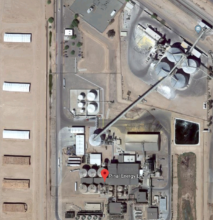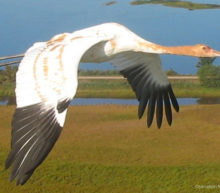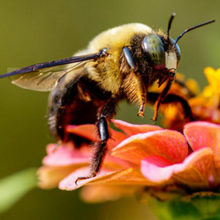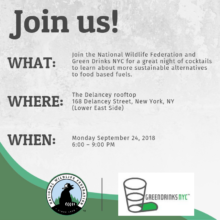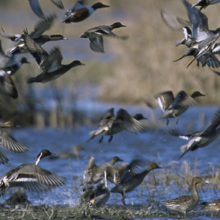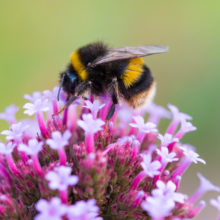
Top 10 Reasons I’m Not Celebrating 10 Years of the Ethanol Mandate
Ten years ago today, President George W. Bush signed into law the ethanol mandate called the Renewable Fuel Standard. Intended to reduce reliance on foreign oil and the emission of climate pollution while spurring production of new types of home-grown fuel, the policy has left a decade’s worth of failure and unintended destruction in its […]

NWF: Trump Administration Embraces Same Flawed Ethanol Policy
Final rule from EPA continues full-steam-ahead approach on environmentally damaging fuel WASHINGTON, D.C. — In response to today’s final rule from the Environmental Protection Agency establishing the mandated volumes of corn ethanol and other biofuels in next year’s gasoline supply, National Wildlife Federation President and CEO Collin O’Mara issued the following statement: “The Trump Administration’s […]

New Research: Ethanol Mandate Contributing to Climate Change
Massive conversion of habitat to cropland has led to release of climate-disrupting pollution equivalent to 20 million additional cars on the road per year FORT WORTH, TEXAS – Amid record-setting wild fires out West, recent climate assessment sounding the alarm about threats from rising global temperatures, and data showing 2017 will be one of the hottest years on record, new […]

U.S. House Members Ask EPA Chief Pruitt to Fix Ethanol Mandate
On November 7th, 2017 more than 60 members of the U.S. House of Representatives sent a letter to U.S. EPA Administrator Scott Pruitt, urging him to fix the broken corn ethanol mandate. Here’s an on-the-record statement from Collin O’Mara, president and CEO of the National Wildlife Federation: “Fixing the ethanol mandate is essential if we are […]
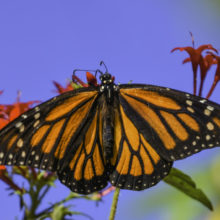
Rethinking the Ethanol Mandate: Here’s Why
Click the infographic to learn more about how the ethanol mandate is fueling destruction. Environmental Protection Agency (EPA) administrator Scott Pruitt recently suggested an increase in the production level of ethanol made from corn — up from the current limit of 15 billion gallons a year. The 2018 standard will be determined in November under […]

Backfiring Biofuels: Are They Really Renewable?
August 10th is International Biodiesel Day—a day originally created to celebrate adoption of non-traditional fuels. But, some of these biofuels have been proven to be more damaging to the environment than initially imagined. Despite this data, a problematic push for “green” biofuel continues globally. While the original intent to use biofuels was to reduce emissions, […]

Wildlife Win for Protecting Monarch Butterfly Habitat
We/you spoke up, and Congress listened! A Senate committee was headed for a crucial vote next week on S. 517, a bill that would have weakened clean air protections and harmed wildlife and water. Conservation voices like the National Wildlife Federation and our affiliates around the country rose up to say, “Enough is enough.” Our […]
U.S. Senate Attempts to Sacrifice Clean Air Act Protections
Groups including the National Wildlife Federation are urging the U.S. Senate to reject rolling back Clean Air Act protections in the Consumer and Fuel Retailer Choice Act (S. 517), a bill that would to allow higher-content ethanol gasoline to be sold year-round throughout the U.S at the expense of public health. David DeGennaro, agriculture policy […]
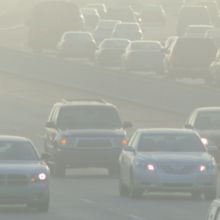
Clean Air Rollback by Congress Could Impact Summer Fun
Photo Credit: Jennifer L. Graham, USGS As we head into the annual Memorial Day kickoff of the summer season, Americans have a lot to look forward to – warm, sunny days at the beach, on the trail, in the garden, or on the water. Unfortunately, the hazy days of summer also come with some downsides, […]

EPA Biofuel Rule Includes Loophole that Threatens Wildlife Habitat
Homegrown ethanol should not come at the expense of vanishing prairie ecosystems and wildlife habitat. That was the deal Congress struck in 2007 when it mandated billions of gallons of ethanol and other biofuels be blended into gasoline each year. Swift fox on the Kansas prairie. Photo from USFWS The U.S. Environmental Protection Agency (EPA), […]
- More Articles
- Page 3 of 4
- 1
- 2
- 3
- 4
